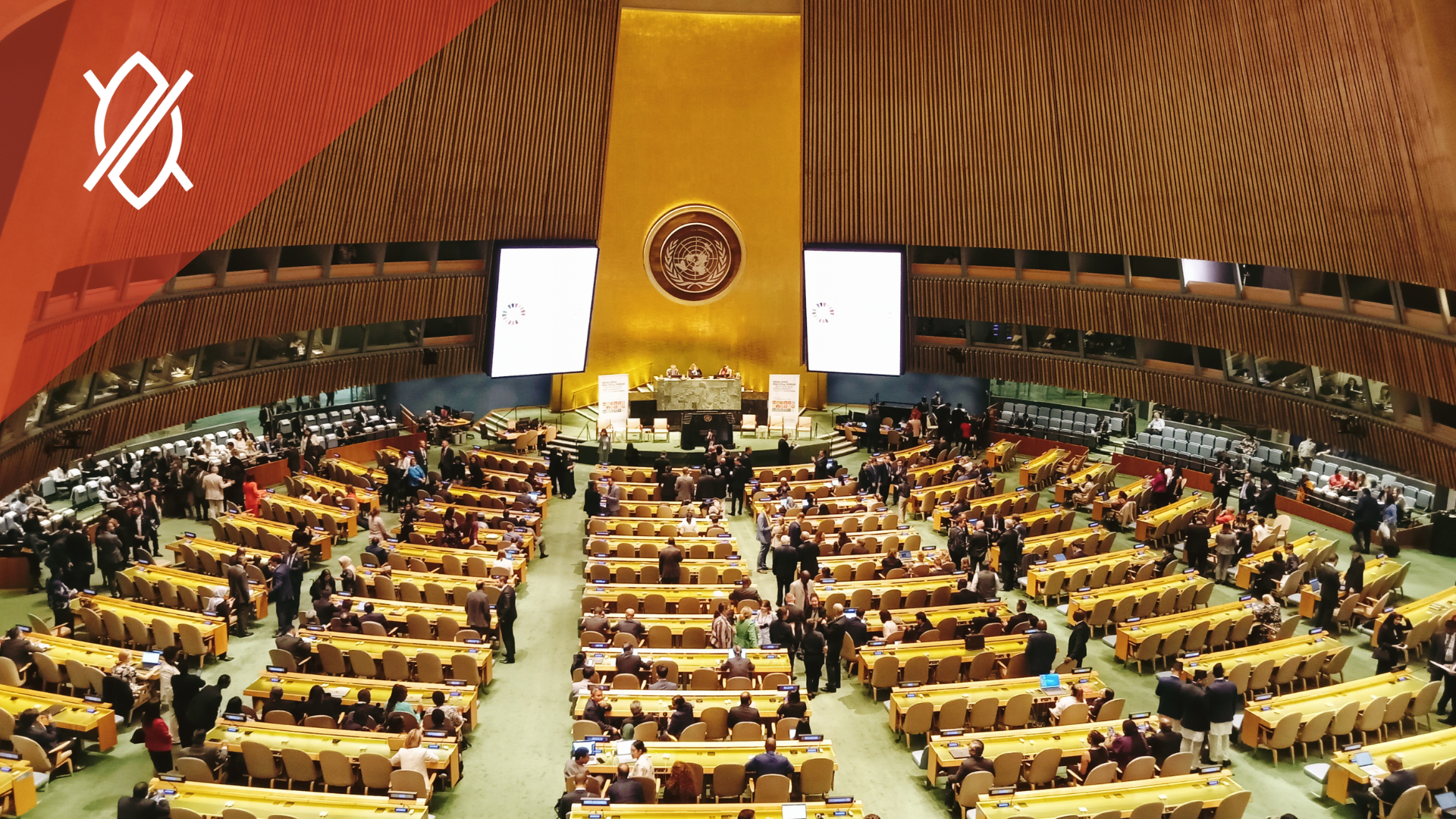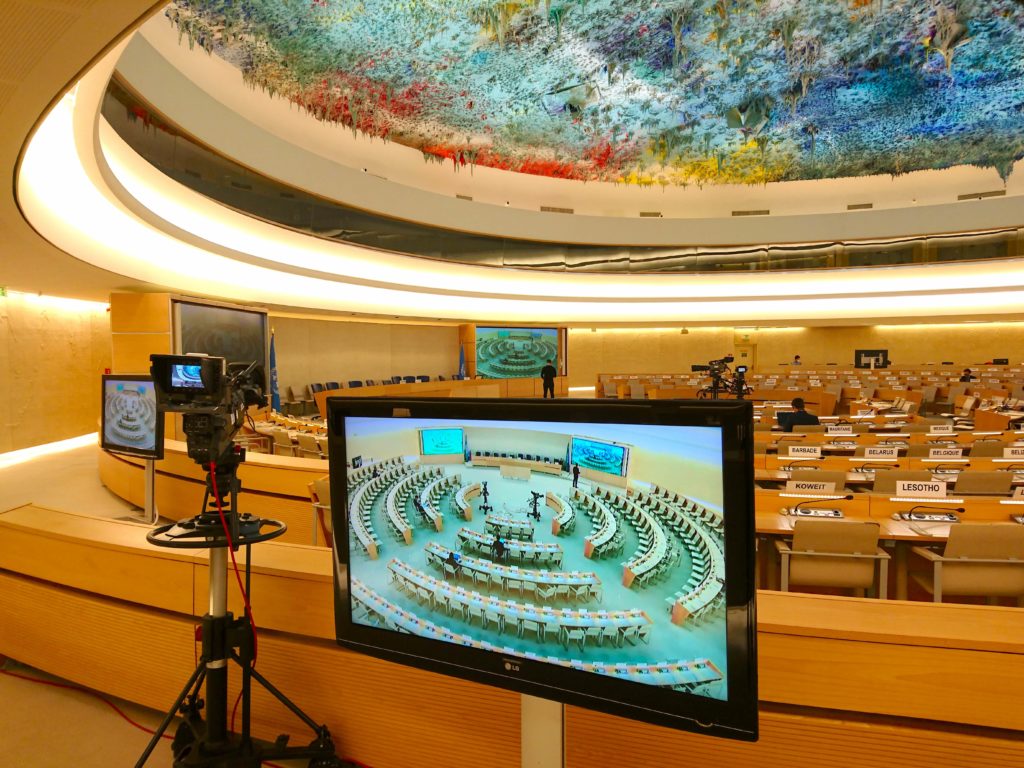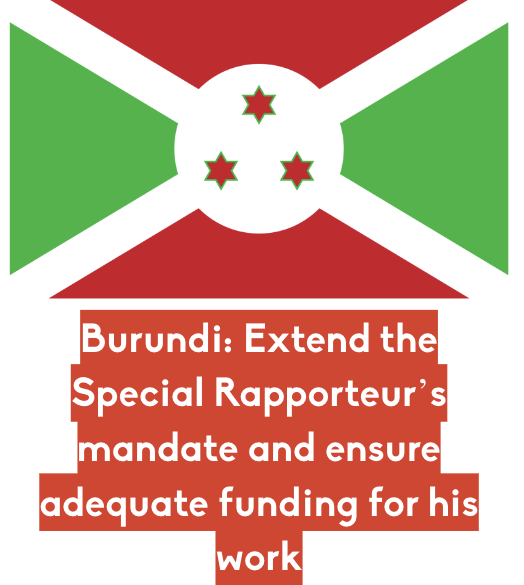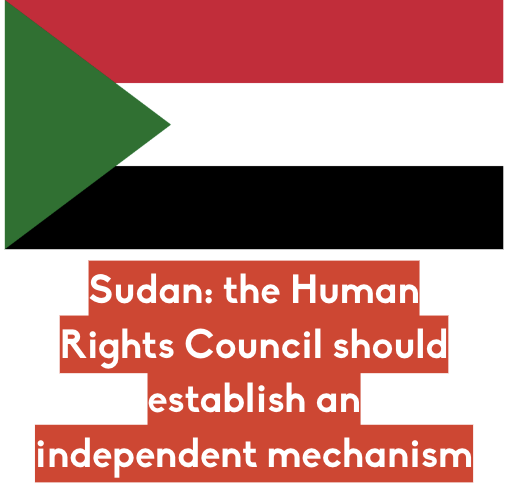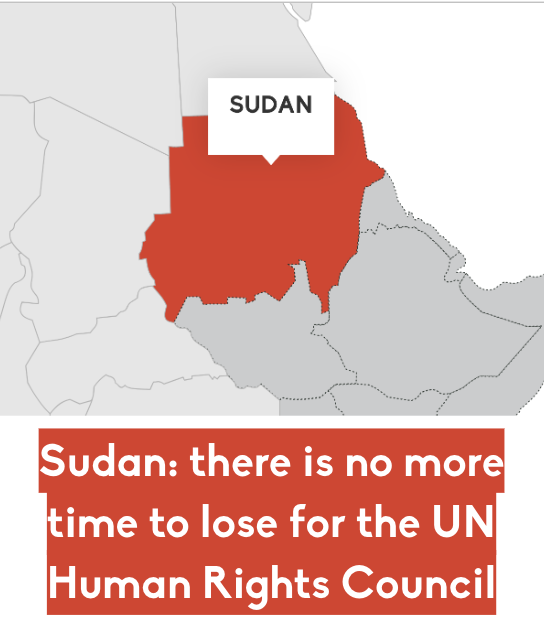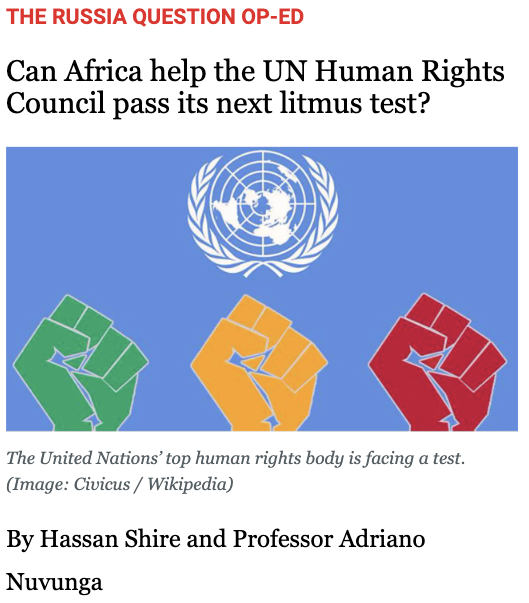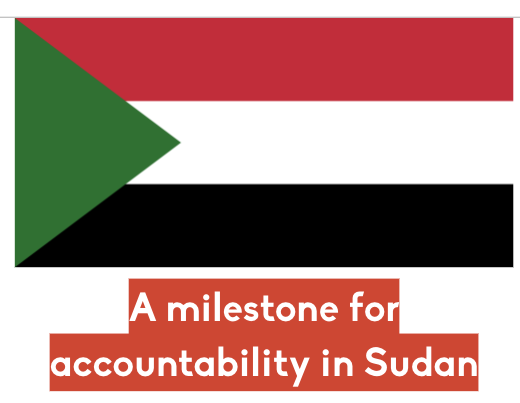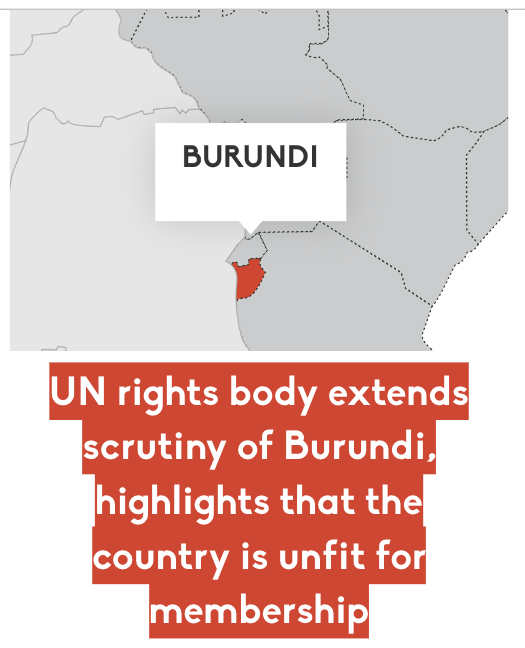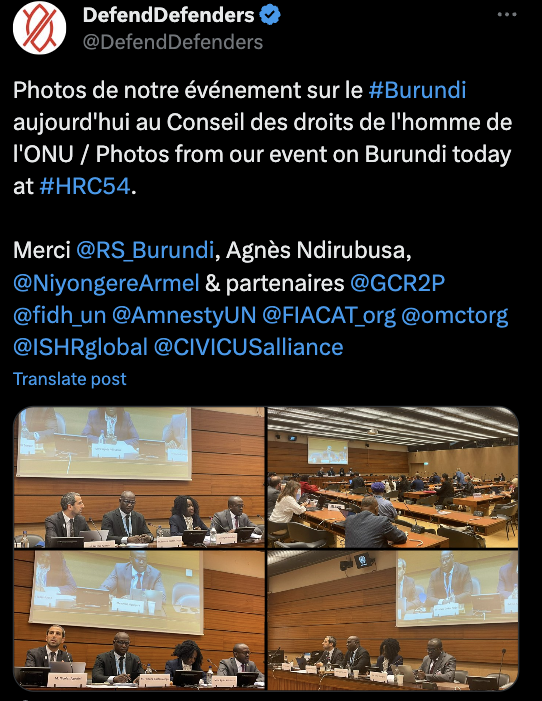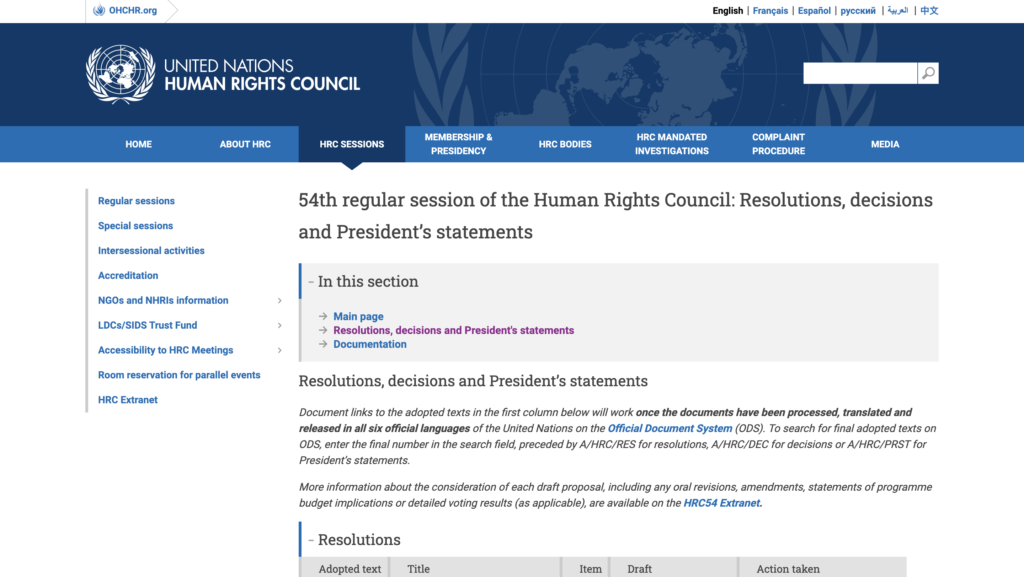The Human Rights Council’s 54th session (HRC54), the longest September session in the history of the UN’s top human rights body (five weeks), showed the relevance of both the Council and DefendDefenders’ advocacy work.
First, the Council was able to respond to some – albeit not all – of the world’s worst human rights crises. It adopted key resolutions on Sudan, Afghanistan, and Russia, among others. Second, DefendDefenders, through both its in-house expertise and the expertise of human rights defenders (HRDs) we bring to Geneva, made sure issues affecting HRDs in our mandate countries were considered in United Nations (UN) decision-making. Resolutions on Sudan, Burundi, and Somalia are testaments to the quality of our collaborative advocacy.
During the session, elections to the Council for the 2024-2026 period also caught significant attention. The stakes were high: Russia was a candidate within the Eastern Europe Group. 18 months after its suspension from the Council, following its aggression against Ukraine, Russia’s re-election would have been a disaster for the Council, as Prof. Adriano Nuvunga and I highlighted in an opinion piece (also available in French). It truly was a litmus test. Thankfully, Russia was defeated by Albania and Bulgaria. We deplore, however, the elections of states that fail to fulfil basic membership criteria, including Burundi and China.
Sudan: a milestone for accountability
HRC54 ended with a ray of hope for accountability in Sudan, after six months of a deadly war. Despite fierce opposition by Saudi Arabia and other Arab states, the Council adopted its strongest resolution ever on the country. A majority of member states supported the creation of an independent mechanism to shed light on violations committed in the country. The resolution established an independent international Fact-Finding Mission (FFM) for Sudan, with a mandate to, among others, investigate violations, collect and preserve evidence, and identify those responsible. This is fully in line with civil society demands.
This also follows months of advocacy, which materialised in a special session of the Council, in the Spring, and continued during the 53rd regular session (HRC53) and throughout the summer. Mid-HRC54, after weeks of consultations and steadfast efforts by civil society led by DefendDefenders, a group of four states (UK, USA, Norway, Germany) finally took an initiative. The vote was tight, but the outcome was widely acclaimed.
This resolution is a milestone. It is the first time an international body has taken strong action centring accountability in the response to Sudan’s conflict. All warring parties should be warned: they are now being watched and those who commit atrocities will be held accountable.
Steadfast Council action on Burundi and Somalia
Sudan was a logical priority for us, but we do not forget human rights crises in other countries of our mandate. At HRC54, we pursued our advocacy on Burundi, building on efforts since 2015 to address violations, promote accountability, and enhance the protection of HRDs. We advocated for the renewal of the mandate of the Special Rapporteur, who succeeded the Commission of Inquiry (COI) in 2021. We also pushed for additional resources to be allocated to his mandate. Once again, ahead of HRC54, we led the development of a joint civil society letter.
During the session, with two Burundian HRDs, we met with key stakeholders, including member states of the Council. We also held a side event with the Special Rapporteur on Burundi, Fortuné Gaetan Zongo, and defenders. Our aim, and longer-term objective, is to make sure that Burundi does not become a forgotten crisis.
Regarding Somalia, which remains on the Council’s agenda with an Independent Expert monitoring the situation and reporting to the Council, we conducted a round of meetings with states, experts, and UN officials with a prominent HRD and journalist, Omar Faruk Osman. We highlighted the situation of HRDs, including journalists, in the country, and the general human rights situation, which requires ongoing international attention.
By contrast to these two situations, the Council failed to ensure follow-up to its action on Ethiopia, even in the form of a resolution focusing on technical assistance and capacity-building. This is a missed opportunity.
Our next steps at the Council
The next regular session, HRC55, will take place in February-March 2024. It will open with the traditional “High-Level Segment,” an opportunity for state dignitaries to address the Council, outline their human rights policy, and make pledges. Debates on country situations, including Eritrea, Sudan, and South Sudan, as well as on thematic issues such as HRDs, are expected. We will push for a strong resolution extending the mandate of the Commission on Human Rights in South Sudan (CHRSS).
Oral Statements
Letters and Statements
Press Release
Side Events
Resolutions
- Sudan (54/2)
- Burundi (54/20)
- Somalia (54/32)
- Reprisals (“Cooperation with the United Nations, its representatives and mechanisms in the field of human rights”) (54/24)

